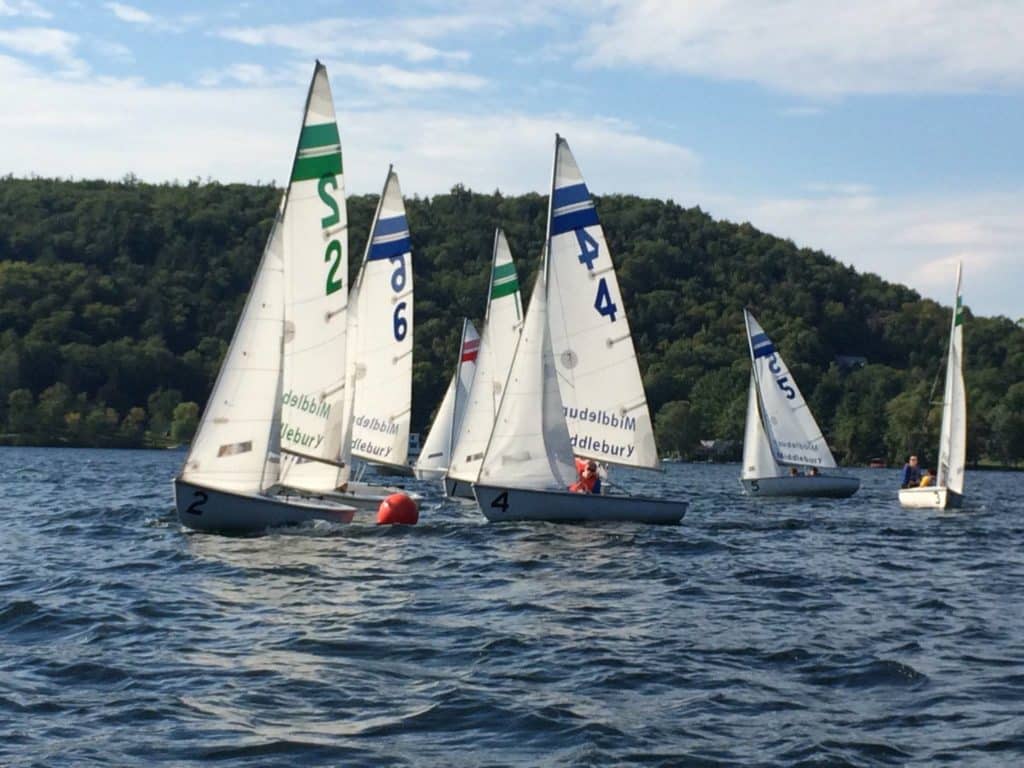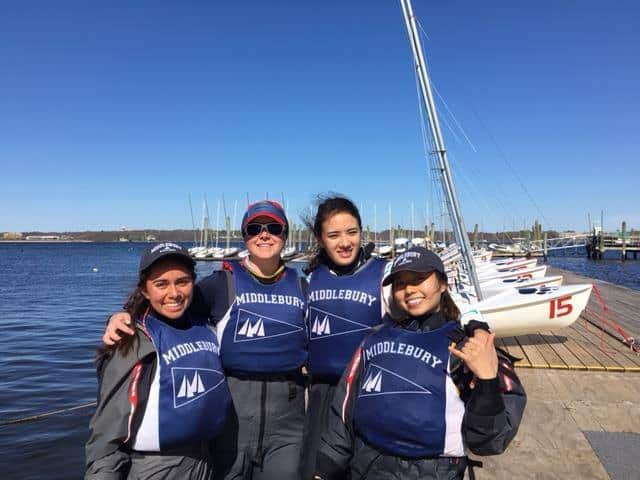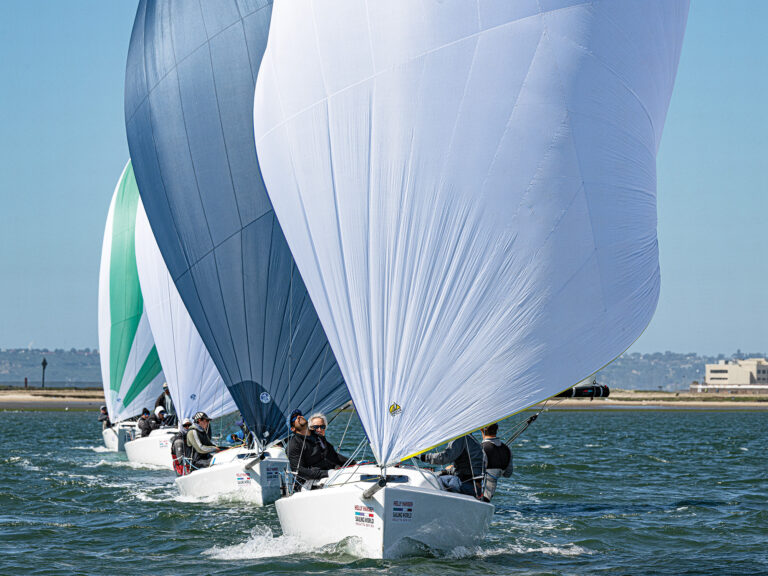
Jade Forsberg was the recipient of the James Rousmaniere Student Leadership Award in the Intercollegiate Sailing Association Hall of Fame in 2017. She was recognized for her help in creating the New England Intercollegiate Sailing Association (NEISA) Team Development Handbook, as NEISA vice president, and for her leadership on the Middlebury College Sailing Team.
The Middlebury team is a club sport at the college, run by a student executive board and a coach. The team has 12 FJs and currently practices on Lake Dunmore, a 20-minute drive south of campus. The sailors work out together two to four times per week depending on the season, and sail four days per week, with attendance required at least twice per week.
When Forsberg joined the team, she saw a need for small, developing collegiate teams in the NEISA conference to be connected with a resource to help them get started and thrive.
“At the regional level, I felt like we had some very distinct levels of competition and team organization, and I wanted to make sure we had a voice for smaller-club teams that are in the earlier stages of development within the conference,” says Forsberg. “I think it makes for much better competition when you create a more inclusive environment and enable people to develop within the sport, regardless of whether you go to a top 10 ranked school or are just starting a team at your university.”
Forsberg is fueled by her passion for sailing and excitement for the sport at the college level to become more involved with the conference and give back to the organization that helped the Middlebury team come together.
“My experience definitely inspired me to create a tangible document that compiled knowledge from a variety of different sources and backgrounds so many teams can benefit from it,” she says. “[Dartmouth College head sailing coach] Justin Assad and [NEISA undergraduate president] Hannah Lynn were huge drivers in the effort; both were extremely supportive of seeing NEISA develop and helping make that more possible for smaller teams.”

With a full academic workload, sailing practices, regattas and NEISA projects, Forsberg had her plate full, but she still managed to fit in everything and graduate in May 2017 with a major in neuroscience and double minor in computer science and geography.
“Managing everything was definitely the biggest challenge,” she says. “For the most part, being in season would help me keep up with schoolwork even though I had less free time. I couldn’t wait to get to practice each day, and that motivated me to get a head start on my schoolwork so I could then focus on practice and getting ready for the weekend’s regatta.”
Through prioritizing her focus to be on sailing only while on the water, and off the water divide it among schoolwork, the sailing team and NEISA projects, Forsberg found her system, set deadlines, and even though it was not always perfect, she found her groove.
“It was amazing that despite our academic workloads and going to practice every day and competing each weekend, we still had enough energy to push for what the team needed to develop and ensure everything was running smoothly,” Forsberg says.
“Being on our particular club team was at times challenging and frustrating, but also very rewarding,” she explains. “We often met a lot of bureaucracy from the school and frequently struggled to get them to understand sailing as a distinct sport with its own unique requirements, even at our level of competition. At the end of the day, we’re getting a lot better at managing and building a better relationship and understanding within the school.”
Her hope is to see the Middlebury team grow and continue to improve within the conference.
Forsberg sees her hard work paying off. “In NEISA, I hope to see the conference continue to grow, and mostly I hope to see smaller teams improving and hopefully shaking up the competition in the conference,” she says. “I hope that our efforts are helpful for smaller teams.”









